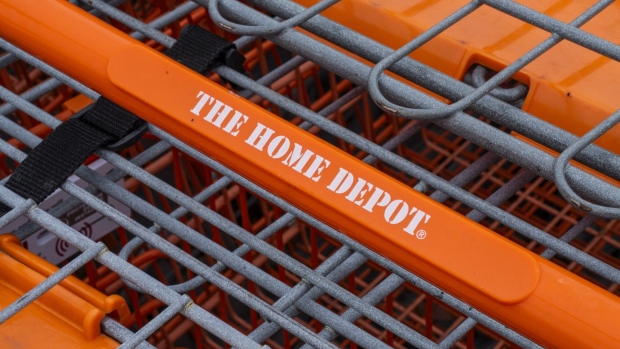Mar 15, 2024
Home Depot Says It’s Committing to Cities That Rivals Flee Over Crime Concerns
, Bloomberg News

(Bloomberg) -- Home Depot Inc. has remained committed to major US cities including Oakland, California, Detroit and Philadelphia as rampant retail theft has driven rivals out, according to Chief Executive Officer Ted Decker.
The home-improvement retailer, which has been investing heavily in technology to prevent organized retail crime, saw a notable increase in theft beginning about five years ago, Decker said. In 2023, the company experienced more than 142,000 instances of shrink, which includes petty crimes, goods stolen or lost by employees, and organized retail crime.
In one case last year, a former pastor in Florida was accused of running an organized crime ring that stole at least $1.4 million in home-improvement merchandise from Home Depot.
“This is billions of dollars we’ve had to absorb into our cost structure,” Decker said in an interview in Las Vegas. “This is the result of very, very serious societal problems.”
Read More: Home Depot Ties Opioid Crisis to Recent Surge in Store Theft
Because of Home Depot’s level of profitability, it has opted to remain in cities where other major retailers have closed stores, Decker said. In Oakland, for example, restaurant chains including Yum! Brands Inc.’s Taco Bell and In-N-Out, as well as Target Corp., have shuttered locations in recent months as a result of rising crime.
But when Home Depot initiated a plan last year to open 80 new stores over five years, widespread theft led it to remove some cities that it had penciled in to get new locations. The decision was meant to prevent both potential losses and threats to employee safety, Decker said.
Read More: Dollar General to Curb Self-Checkout to Cut Inventory Losses
Efforts that have helped include shopping carts that lock when customers haven’t paid, license-plate-recognition cameras in parking lots and a theft-input portal where employees can report crimes. But “it’s just sort of capping the problem,” Decker said.
Merchandise losses, including from theft, are “significant enough to be one of my highest priorities from a financial perspective,” Chief Financial Officer Richard McPhail said in an interview. “The narrative is absolutely not overblown.”
©2024 Bloomberg L.P.


